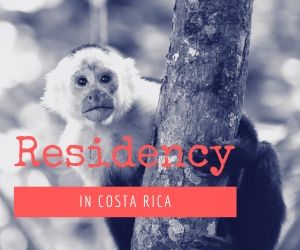|
Human rights commission calls on Costa Rica to end excessive use of preventive detention
By Timothy Williams – March 14, 2016
Many suspects awaiting trial are housed alongside convicted criminal in Costa Rica's La Reforma Prison, pictured. (ICR/CRS Archive)
Many suspects awaiting trial are housed alongside convicted criminal in Costa Rica’s La Reforma Prison, pictured. (ICR/CRS Archive)
The Inter-American Commission on Human Rights (CIDH), an autonomous body of the Organization of American States (OAS) headquartered in Washington, D.C. is calling on Costa Rica to end what it considers the excessive use of pretrial imprisonment in the country.
In January of this year, some 18 percent of the entire prison population in Costa Rica were inmates awaiting formal charges or a chance at trial, known in Costa Rica “preventive detention.”
Judges routinely order three to six months of preventive detention following arrests, though detention is sometimes extended to give prosecutors additional time to build a case.
In many cases, those arrested remain in jail on “suspicion” – but without formal charges – on hopes that prosecutors can build a case with sufficient evidence to bring charges against them. But many times, prosecutors fail to do so, ultimately declining to press charges and detainees are released after spending three, six, or more months in prison.
In a report of the CIDH, the Commission is calling on Costa Rica to only apply preventive detention in “exceptional” cases, saying that preventive detention should be the exception, not the norm, and should be applied while taking into account “the principles of legality, presumption of innocence, reasonableness, necessity and proportionality.”
“It (imprisonment) is the most severe measure that can be imposed on a defendant […] with all the real consequences that it entails for the person and his family,” the Commission said in its report.
The Commission also noted the “deplorable” condition in the La Reforma Prison, where many prisoners awaiting charge or trial are housed along with convicted inmates.
One American – who spent six months in preventive detention in Costa Rica before being released – has also been campaigning against the practice of pretrial imprisonment since his release.
Mr. Patrick Hundley, founder of Daystar Properties in Jaco, Costa Rica, was arrested in Costa Rica on February 17, 2014, after being accused of fraud by a former business partner. A judge determined that Hundley should be held in a prison in Perez Zeledon while prosecutors attempted to build a case against him.
He would remain in the prison for more than six months before being released without charge.
According to Mr. Hundley, he shared a cell designed to hold 22 prisoners with 60 other inmates – “some of them convicted murders,” according to Hundley.
Most men were forced to sleep on the concrete floor and 60 men had to share a single shower, Hundley says on a web site he set up to as part of his campaign to end preventive detention in Costa Rica, CostaRicaInjustice.com.
In an open letter written by Hundley while still behind bars in 2014, the American real estate developer, originally from west Michigan, described Costa Rica’s system of preventive detention as “broken and in need of repair.”
“[The system of preventive detention] is abused by overworked and sometimes lazy prosecutors as a way to buy time for their case. Unfortunately, men are sent to prison with no proof or evidence of guilt while the prosecutor builds his case. This goes against the laws of this country and against all human rights. A system that punishes without proof of guilt is indefensible. Under the [preventive detention] system people are treated as ‘guilty’ until proven innocent’ and we all know it should be ‘innocent” until proven ‘guilty’,” Hundley wrote.
“The current prisons cannot handle additional inmates. They are currently over capacity and the conditions are inhumane. For example, the cell in which I am currently located was built for 22 inmates. During my stay, we have had as many as 66 men. That is 3 times capacity. We are packed in like sardines in a can, men sleeping all over the floor. This overcrowding creates an unbelievable hostile environment. Plus, it creates an even more unsanitary condition. It overburdens the infrastructure. We have had countless days with interrupted water service. We had a 20 day period where it was necessary to fill a bucket with water to flush toilets and to pour water over you to take a shower. We have had complete days with no drinking water available. Frankly, the overcrowded and unsanitary conditions breed an unhealthy environment which leads to many illnesses and violent actions,” Hundley continued in the open letter.
“The access to medical attention is deplorable. I have seen many inmates go untreated for infections and gripe (flu) for many weeks. I believe it is due to an understaffed and overworked medical department. Most of the illnesses could be prevented if the overcrowding and unsanitary conditions were eliminated. In an extreme case I watched an older inmate have what appeared to be a heart attack. Several guards surrounded him and simply watched. I rushed to him to offer assistance because I am CPR trained. Thankfully he was having an asthma and panic attack and recovered. The point is, the staff is obviously not properly trained to administer any medical help if needed.”
Mr. Hundley was released, without charge in late 2014.
_________________
nicarica
|









